Football is more than just a game. It is a feeling, perhaps a religion, for millions of people worldwide. And the football teams that supporters revere like holy establishments are at the center of this global craze. Over many years, sometimes even more than a century, these groups have established a legacy. Their outstanding players, illustrious rivalries, and memorable moments have influenced the sport. We’re delving deeply into the top 5 football teams of all time today—those that are far superior to the others in terms of fan base, legacy, and effect.
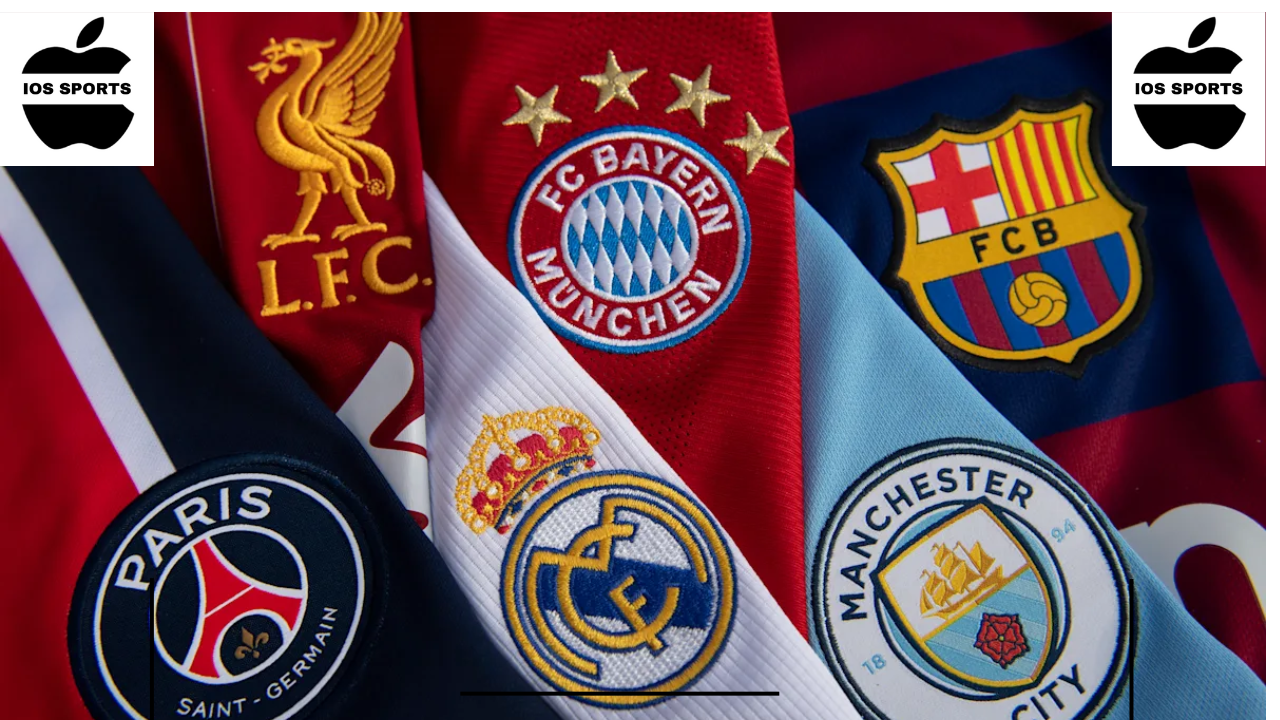
Suggested For You: https://iossports.com/cristiano-ronaldo/
1. Real Madrid CF—The Kings of European Football
A Glorious History of Excellence:
Perhaps the most famous football team in the world is Real Madrid Club de Fútbol, or just Real Madrid. This Spanish powerhouse was established in 1902 and has never been demoted from La Liga, which says a lot. Their reputation in European competition, however, is what really makes them stand out. Real Madrid is the club that most exemplifies the term “The Kings of Europe.” They have won 14 UEFA Champions League titles, which is an incredible record that no other team has even approached.
The team has consistently produced some of the greatest players the world has ever seen, from Cristiano Ronaldo to Alfredo Di Stéfano. Although their white uniform, referred to as “Los Blancos,” represents innocence, their power is far from gentle. Real Madrid’s winning style, which has been ingrained in their DNA for more than a century, combines style and brutality.
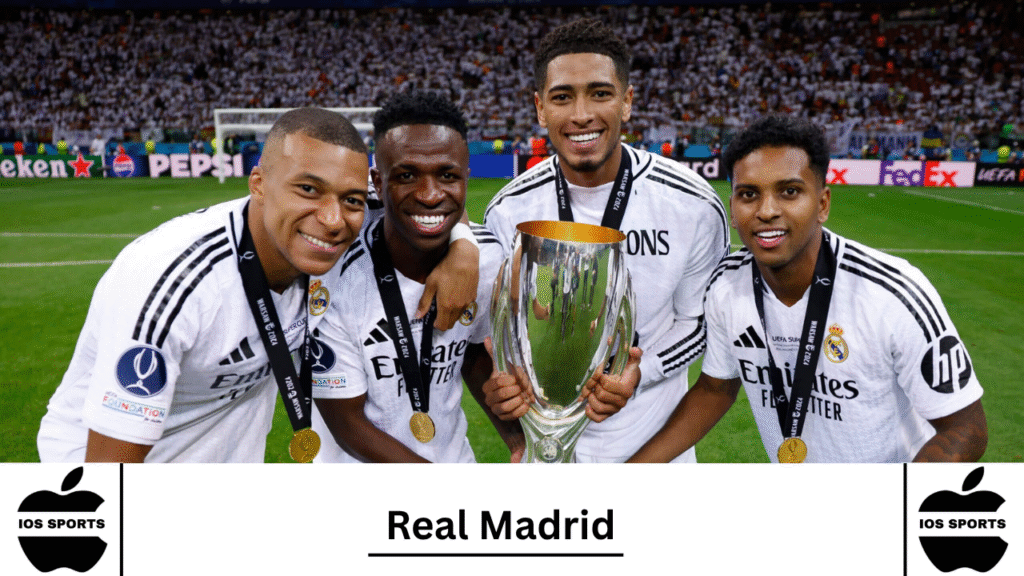
Legendary Players Who Shaped the Club:
The history of Real Madrid is packed with footballing royalty. In the 1950s, Alfredo Di Stéfano, who is regarded as one of the greatest of all time, was the driving force behind the team’s dominance. Ferenc Puskás, Zinedine Zidane, Raúl, and, of course, Cristiano Ronaldo, the team’s all-time top scorer, followed. These players not only contributed goals and assists, but they also defined eras. Ronaldo, in particular, helped the team reach new commercial and competitive heights by scoring over 450 goals in just nine seasons. The galácticos policy, which brought David Beckham, Luís Figo, and Kaká to Madrid, transformed the club into a worldwide marketing machine.
European Dominance and Trophy Cabinet:
Every club in the world is envious of Real Madrid’s trophy cupboard. They have continuously demonstrated their abilities in every competition, winning 14 UEFA Champions League crowns, 35 La Liga trophies, 20 Copa del Rey victories, and numerous Club World Cups.
Their remarkable capacity to execute under duress is what makes them unique, particularly in Europe. Real Madrid appears to get stronger in crucial situations, as evidenced by their spectacular comebacks against PSG, Chelsea, and Manchester City in recent Champions League campaigns. It involves more than simply competence; it involves mindset. The club is instilled with this winning mentality from the youth onward.
2. FC Barcelona—The Art of Beautiful Football
Origins and Rise to Global Fame:
FC Barcelona is more than just a football team; it was founded in 1899 by Swiss football pioneer Joan Gamper. Their motto, “Més que un club” (More than a club), sums up their impact in politics, culture, and sports. Barça, in contrast to many other clubs, is a symbol of the Catalan identity, which is a region with a strong feeling of independence and a rich history.
Barcelona did not become a household name overnight. It required decades of growth, fostering homegrown talent, and upholding the ideals of offensive, team-oriented, and stylish football play. Their dedication to flair rather than force is what made them special and endearing to millions of people worldwide.
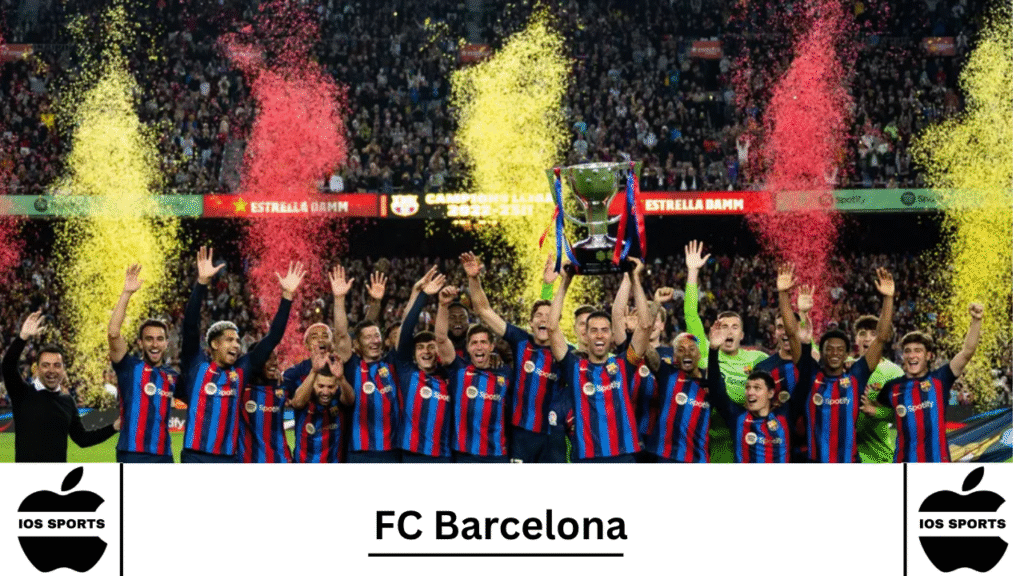
The Tiki-Taka Era and Pep Guardiola’s Impact:
The years 2008–2012, when Pep Guardiola was manager, were one of the most significant in modern football history. This was the era of “Tiki-Taka,” a possession-based style of play that emphasized short passes, fluid movement, and overwhelming control. It was not only effective, but it was captivating. Barcelona, with a young Lionel Messi up front and a midfield trio of Xavi, Iniesta, and Busquets, dominated European football, winning two Champions Leagues in 2009 and 2011, and destroying opponents with their superior tactical prowess.
Legacy of Lionel Messi and Current Rebuilding:
It would be impossible to discuss FC Barcelona without mentioning Lionel Messi, the Argentine wizard who spent more than 20 years there, becoming the team’s soul and all-time top scorer and most-capped player. Under Messi’s leadership, the team won numerous titles, including a historic sextuple in 2009. Since Messi’s departure in 2021, the team has experienced financial difficulties and erratic performances, but Barcelona is rebuilding with young players like Pedri, Gavi, and Ansu Fati at the helm and a strong philosophy.
Must Watch: https://iossports.com/lionel-messi/
3. Manchester United—England’s Most Successful Club
The Sir Alex Ferguson Era:
The most successful English football team in terms of total trophies is Manchester United, which is headquartered at Old Trafford, England. But there is one man, Sir Alex Ferguson, with whom the name “Manchester United” is almost synonymous. Ferguson, who was appointed in 1986, turned a struggling team into a powerful empire. During his 26-year rule, he won 38 trophies, including two UEFA Champions League wins and 13 Premier League victories.
Famous players like Ryan Giggs, Paul Scholes, Eric Cantona, Cristiano Ronaldo, and Wayne Rooney were all part of Ferguson’s squad, which was renowned for its dramatic late goals and never-say-die mentality. Ferguson’s squads were unrelenting, technically adaptable, and constantly full of faith.
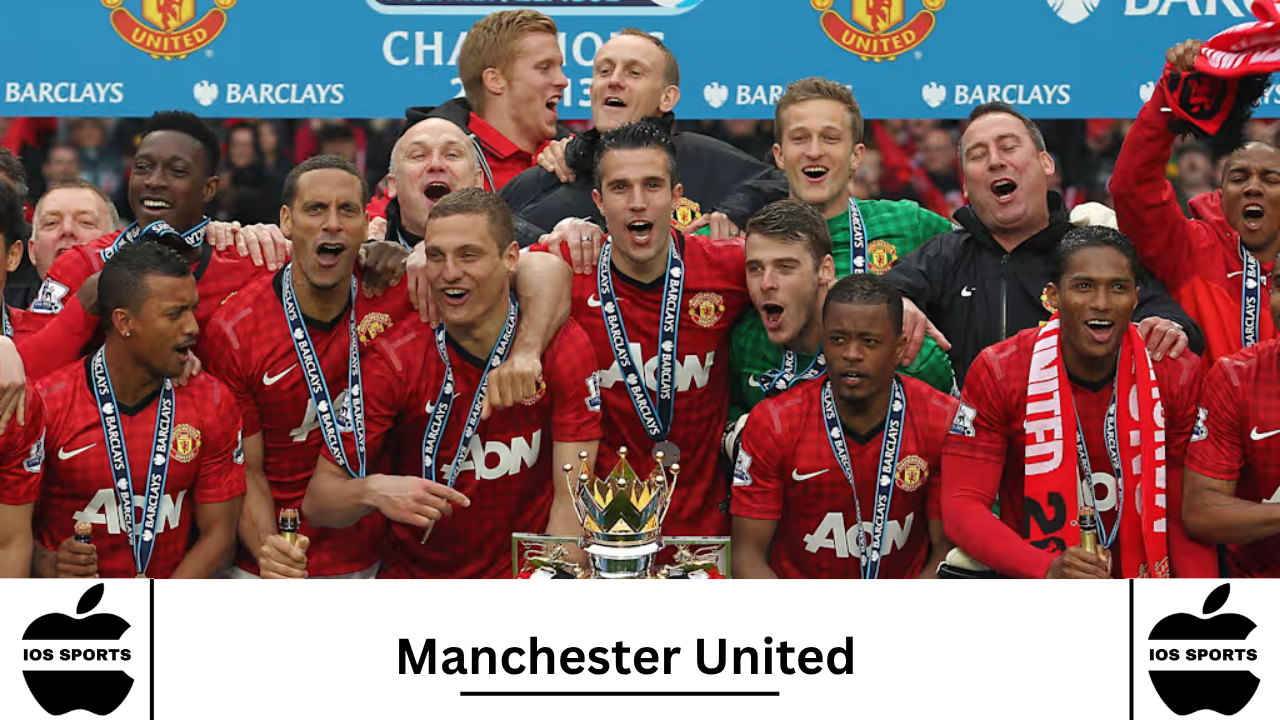
Global Popularity and Cultural Influence:
Manchester United is a worldwide brand in addition to being a football team. They are more than just sports, with millions of admirers across Asia, Africa, and the Americas. The club’s success in the 1990s and early 2000s, their captivating style of play, and a clever business plan that included early forays into international markets are all factors in its reach.
One of the most recognizable stadiums in the world is Old Trafford, sometimes referred to as the “Theatre of Dreams.” Due to decades of experiencing both highs and lows together, Manchester United and its supporters have a strong emotional bond.
Struggles and the Road Back to Glory:
Manchester United has had difficulty staying consistent since Ferguson. Despite some successes, such as FA Cup and Europa League titles, the team has struggled to replicate its glory days under a number of managers, including David Moyes, Louis van Gaal, José Mourinho, and Ole Gunnar Solskjaer. United hopes to regain its position among Europe’s top teams with a redesigned youth system, strategic acquisitions, and a renewed emphasis on long-term planning. The potential is there; all that is required now is time, patience, and the right leadership.
4. Bayern Munich—The Bundesliga Powerhouse
Building a Dynasty in German Football:
Bayern Munich is a worldwide institution in addition to being the greatest club in Germany. Since its founding in 1900, Bayern has developed into a representation of power, success, and discipline in the football world. Their record is unmatched by any other German club. Bayern has dominated the German landscape with an iron hand, winning more than 30 Bundesliga crowns, more than 20 domestic cups, and six UEFA Champions League trophies.
The way Bayern Munich has continued to be successful over the years is what makes them special. Bayern has always managed to renew itself, whether it’s through the legendary players of the 1970s like Gerd Müller and Franz Beckenbauer or the current dominance of players like Thomas Müller and Robert Lewandowski.
The club is renowned for seeing talent early, developing from within, and only making big-name acquisitions when absolutely necessary. Their secret is a solid foundation of German players combined with top international talent, as well as astute financial management and a constant footballing mentality.
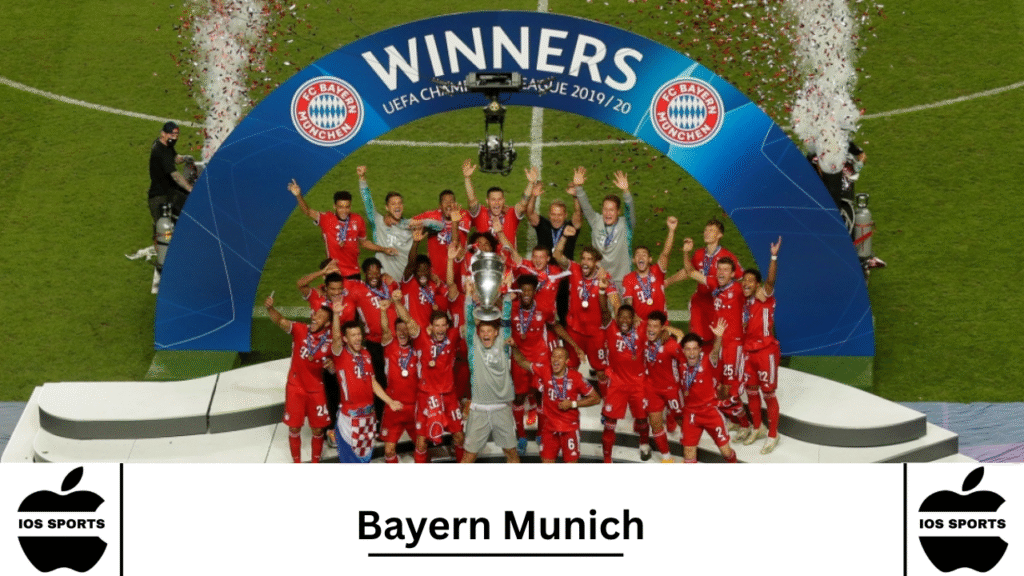
Key Players and Managers Who Made History:
World-class talent has always been a part of Bayern, from the heyday of Franz Beckenbauer, Sepp Maier, and Paul Breitner to contemporary greats like Oliver Kahn, Philipp Lahm, and Manuel Neuer. Among their most notable players, Robert Lewandowski, who broke numerous scoring records while playing for the team, also deserves recognition for his contributions to the club’s tactical genius and success. For example, Heynckes led Bayern to a historic treble in 2012–13, winning the Bundesliga, DFB Pokal, and Champions League.
Financial Stability and Long-Term Vision:
Bayern stands out from many major clubs due to their outstanding financial discipline. While teams like Manchester United and Barcelona have struggled with debt, Bayern is fan-owned (using a 50+1 ownership model), fiscally responsible, and rarely overspends. Their stadium, the Allianz Arena, is fully paid off and represents their prudent financial strategy. This long-term thinking has not only kept the club competitive but also respected globally. They are not just about winning now—they’re about building dynasties that last. For this reason, Bayern isn’t just a German powerhouse; they are a global model for successful football club management.
5. Liverpool FC – The Reds of Anfield
A Rich Heritage of Passion and Success:
The name Liverpool Football Club has a strong emotional connection with football supporters worldwide. The club was established in 1892 and has a long history of success both at home and abroad. Liverpool is one of the most prosperous and well-liked clubs in England, having won 19 English league crowns and six UEFA Champions League trophies.
Tough, robust, and passionate, Liverpool’s identity is etched into the very fabric of the city. The relationship with the supporters has always been vital to the club. Their ancient home pitch, Anfield, is more than simply a stadium; it’s a stronghold that makes every gameday exciting. It’s a heart-wrenching, spine-tingling moment that perfectly encapsulates what football is all about when 50,000 fans sing “You’ll Never Walk Alone.”
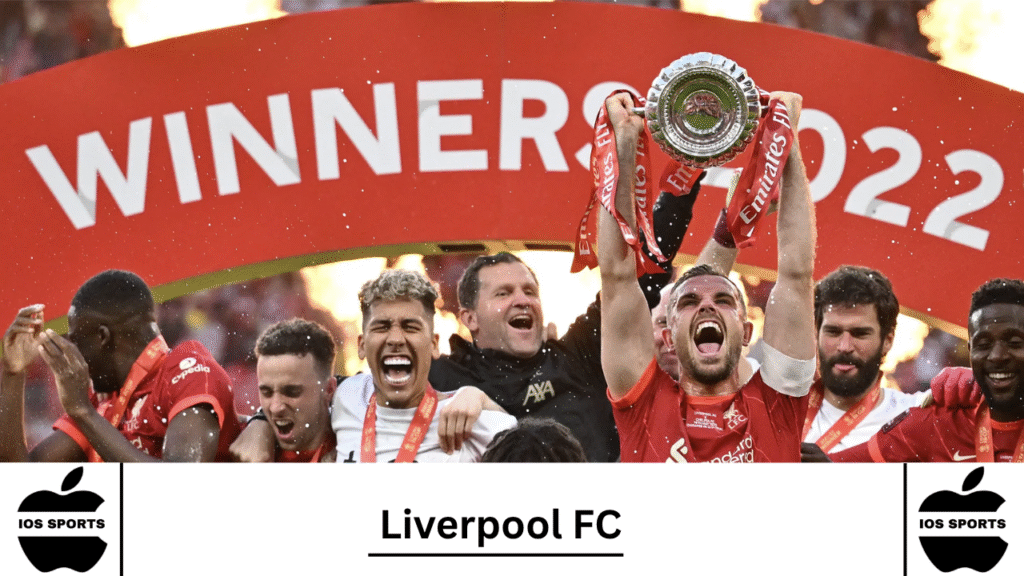
The Klopp Revolution and Modern Resurgence:
Jürgen Klopp is largely responsible for Liverpool’s modern-day comeback. Klopp was hired in 2015 and brought charisma, energy, and a style of play that was perfect for the team. His “heavy metal” football, which involved pressing high, attacking quickly, and playing with unwavering intensity, made Liverpool a formidable force, and the Reds won the Champions League in 2019 and their first Premier League title in 30 years in 2020. The team, which included players like Mohamed Salah, Sadio Mané, Virgil van Dijk, and Alisson Becker, came to be known for its cohesion, work ethic, and flair.
A well-rounded and hungry team was produced by combining top-tier imports with local academy graduates like Trent Alexander-Arnold. Klopp is a famous figure at Anfield because of his capacity to nurture talent and instill faith.
Fan Culture and the Anfield Experience:
Few supporter bases in the world are as loyal and vociferous as Liverpool’s. The club’s supporters are legendary for their unwavering commitment, whether the team is at the top or struggling. “You’ll Never Walk Alone,” their anthem, is more than just a song; it’s a pledge.
On a significant European evening, the atmosphere at Anfield is simply enchanting. Ask Barcelona—in one of the greatest comebacks in history, they were thrashed 4-0 at Anfield following a 3-0 first-leg advantage in the 2019 Champions League semi-final. That’s the Anfield effect—when fans and players come together as one irresistible force.
Conclusion:
When we evaluate the best football teams in the world, we’re talking about more than simply trophy-winning teams; we’re talking about history, legacy, loyalty, and worldwide influence. More than just clubs, Real Madrid, FC Barcelona, Manchester United, Bayern Munich, and Liverpool FC are empires that have been forged over many years by grit, heartache, sweat, and glory.
These teams have shaped entire generations, given birth to some of the greatest athletes in sports history, and generated unforgettable moments for supporters. Each of these teams has something special to offer, from the clinical machine that is Bayern Munich to the deafening roar at Anfield, from the brilliance of Messi at Camp Nou to the defiance of Sir Alex Ferguson’s United.
Whether you are a devoted fan or a casual viewer, the appeal of these clubs is undeniable. Keep in mind that football is always changing, so even though these five stand atop the mountain today, new giants may emerge tomorrow. However, their stories are already inscribed in football’s Hall of Fame. What really unites these footballing giants is their passion. They stand tall not just because of the silverware but also because of the stories, the fans, and the spirit. They represent hope, culture, and unity to millions.
FAQs
1. Which football club has won the most Champions League titles?
The record is held by Real Madrid, who have won an incredible 14 UEFA Champions League titles. They are the undeniable kings of continental football due to their unparalleled supremacy in Europe, particularly in the modern age.
2. Who is considered the greatest player of all time?
This is a contentious issue. Some opt for Lionel Messi or Cristiano Ronaldo, while others choose Pelé or Diego Maradona. Messi makes a compelling case thanks to his technical mastery and consistency over the past 20 years, particularly after winning the 2022 World Cup.
3. What makes a football club one of the “top” clubs?
Trophies, a worldwide fan following, financial might, infrastructure, and historical clout are all part of it. Top-club designation is awarded to teams who regularly win important tournaments, develop or draw elite players, and have a cultural and economic impact on the football community.
4. Are financial resources crucial to a club’s success?
They aren’t everything, though. While funding aids in the purchase of elite players and facilities, club culture, coaching, and strategy are equally important. Look at clubs like Leicester City or Atalanta—modest budgets, but strong footballing brains.
Can a club outside Europe become a top global club?
It’s challenging in the current environment. European teams are dominant because of their infrastructure, quality of competition, and worldwide visibility, but clubs in Asia, Saudi Arabia, and the MLS are making significant investments and have the potential to upend the status quo in the future.
